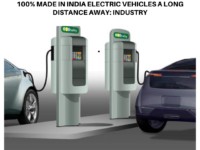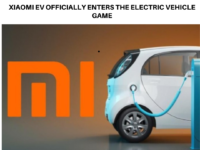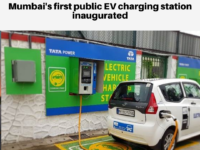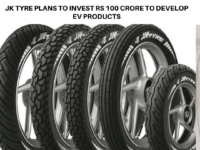-
6 This initiative will increase the sales of electric vehicles in India.
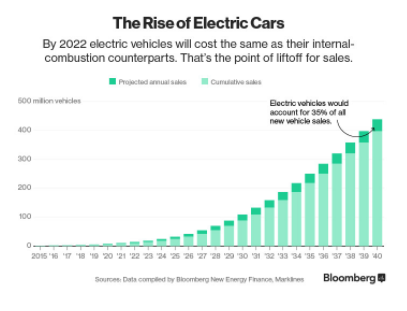
World Economic Forum
This game-changer policy will including all vehicles of Central Govt., State Govt., Municipal Corporation, Panchayats, State Transport undertaking, public sector undertakings, and autonomous bodies with the union and state government de-registered and scrapped after 15 years from the date of registration. That means Electric vehicles demand is drastically increasing, as Government will use E-Vehicle only. This initiative will increase the sales of electric vehicles in India.
-
7 Importance of Vehicle Scrappage Policy in India
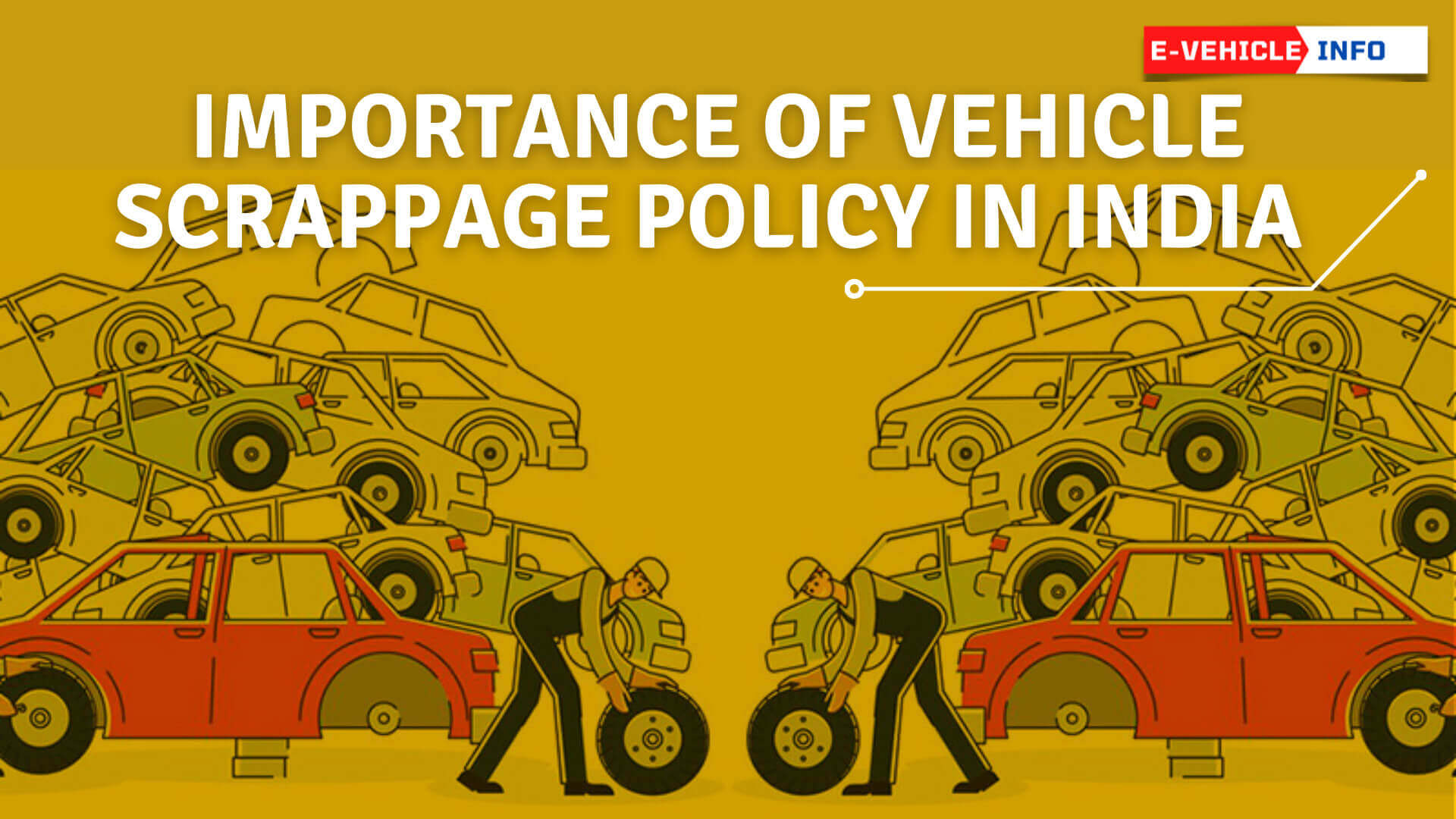
E-Vehicle Info
Not only is the scrappage policy in India a very revolutionary move all over the world, and the government of Germany also spent $3.5 billion funds to the program, incentivizing EV owners with a $3320 rebate, the United States Even in cases where the scrappage rate is 5.1%, the government compensates the car dealer for a $4,500 reduction in the price of the new Electric cars.
The scrappage Vehicle policy will encourage buying more electric vehicles, building more scrap yards and fitness centers with 35000 people who will get employment, and an investment of Rs 10000 crore.
This policy will boost sales of heavy and medium commercial vehicles that had been in the contraction zone as a result of the economic slowdown triggered by the bankruptcy of IL&FS and the Covid-19 pandemic. The government is expecting to get around 30000 to 40000 crores of money through GST.
This will reduce pollution and bring down the prices of auto components drastically with the recycling of metal and plastic parts. As the scrapped material will become cheaper, the production cost of the automakers will also come down.
-
8 Proposed Incentives, Disincentives, and Exemptions
Incentives for scrapping old vehicles and buying new ones are:
- Vehicle manufacturers can give up to a 5% discount for buying new vehicles
- Zero fees on a new registration Vehicle
- Scrap value equivalent of 4-6% of the ex-showroom price of new vehicles
- States can give up to 25% and 15% rebate on road tax for personal and commercial vehicles, respectively
- Reduced maintenance cost and increased savings from fuel
Disincentives for keeping old vehicles:
- States can levy an additional ‘Green Tax’
- Hike in the renewal of registration fee for private vehicles
- Increase in the renewal of fitness certification for commercial vehicles
- Automatic deregistration of unfit vehicles
Vehicles to be exempted from the Vehicle Scrappage Policy:
- Strong hybrids and electric vehicles
- Vehicles using alternative fuels such as CNG, ethanol, and LPG
- Farm and agricultural equipment such as tractors, tillers, and harvesters
-
9 Benefits of Vehicle Scrappage Policy
- The new charges will kick in from Oct 2021.
- The re-registration fee is proposed to be hiked around 8 times for personal vehicle and around 20 times for commercial vehicle rather than this buying a new EV is beneficial.
- The government of India has issued an advisory to all vehicle manufacturers to offer a 5 % discount while selling a new vehicle against a scrapping certificate.
- The scrap value for an old vehicle given by the scrapping center will be approximately 4-6 % of the ex-showroom price of a new vehicle.
- The state government may be advised to offer a road tax rebate of up to 25 % for a personal vehicle and up to 15% on a commercial vehicle.
- In addition, the registration fees may also be waived for the purchase of a new vehicle against the scrapping certificate.
- Boost the availability of low–cost raw materials for the automotive steel and electronics industry.
-
10 Timeline For Application of Proposed Scrapping Policy in India
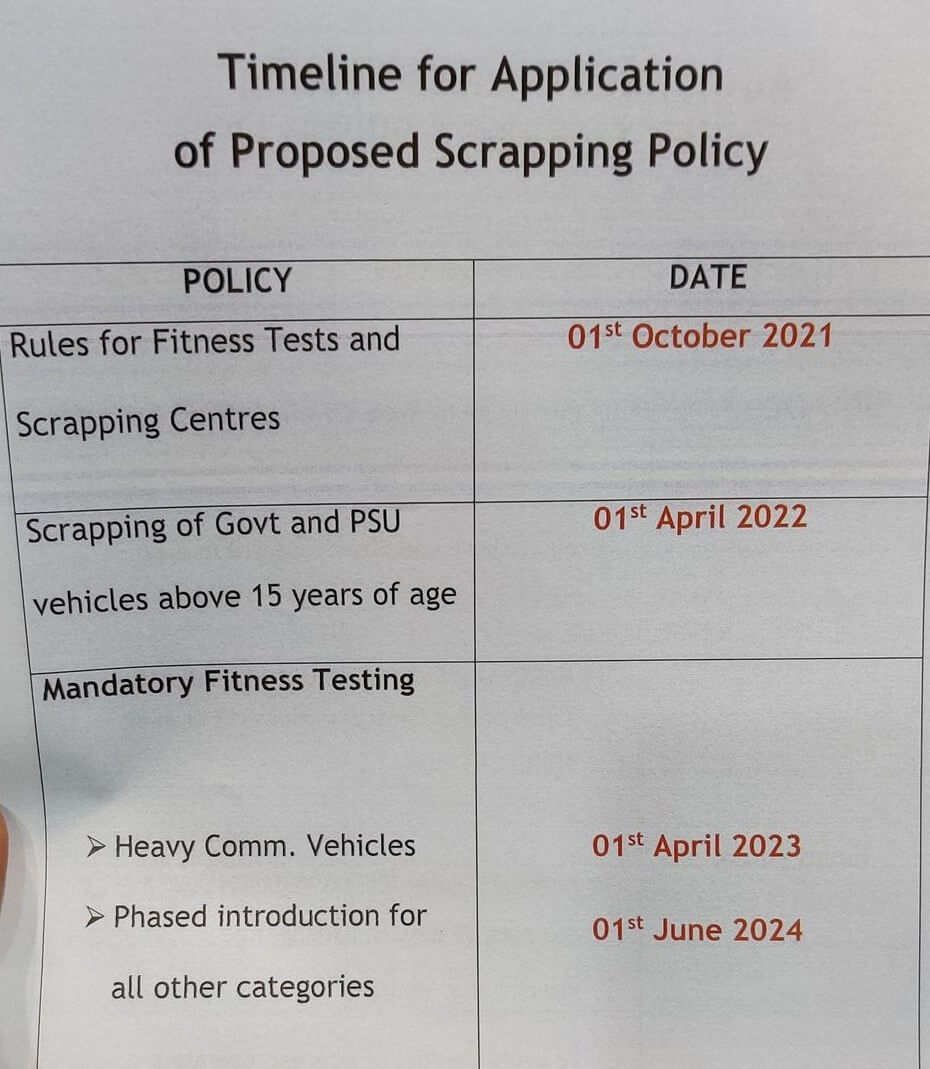
Twitter
Tentative Timeline for implementation of the Proposed Scrapping Policy:
- The rules of the fitness test and scraping center will be applicable from October 1, 2021.
- Scraping of vehicles of government and public sector undertakings above 15 years of age will be done from April 1, 2022
- Compulsory fitness tests for heavy commercial vehicles will be effective from April 1, 2023.
- Compulsory fitness tests for other categories will come into effect from June 1, 2024, in a phased manner.
Join our list
Subscribe to our mailing list and get interesting stuff and updates to your email inbox.









